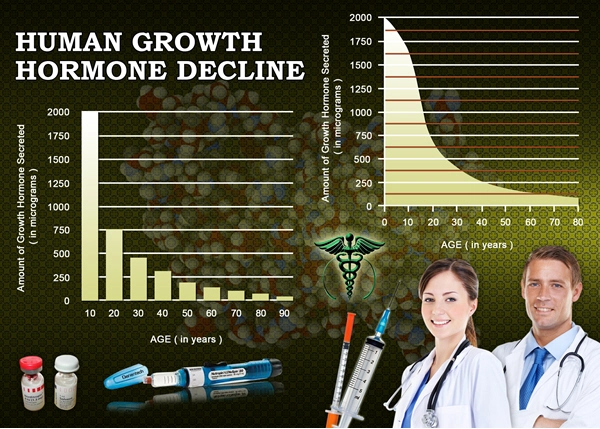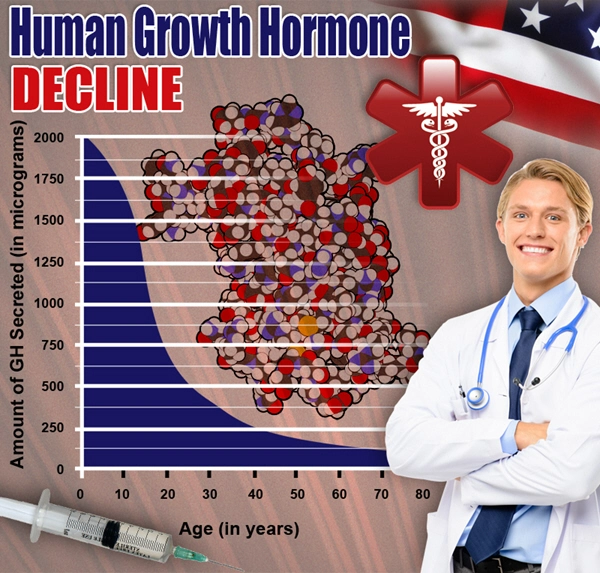Introduction to Secondary Hypogonadism
Secondary hypogonadism, a condition characterized by the inadequate production of testosterone due to dysfunctions in the hypothalamus or pituitary gland, has been increasingly recognized as a significant health concern among American men. While the physical symptoms such as decreased libido, fatigue, and muscle loss are well-documented, the psychological impact of this condition often remains under-discussed. This article aims to shed light on the emotional and mental health challenges faced by men with secondary hypogonadism, emphasizing the need for comprehensive care.
The Psychological Landscape of Secondary Hypogonadism
Men diagnosed with secondary hypogonadism frequently report a range of psychological symptoms that can profoundly affect their quality of life. Depression and anxiety are common, with studies indicating that men with low testosterone levels are at a higher risk of developing these mood disorders. The emotional toll can manifest as feelings of worthlessness, irritability, and a diminished sense of well-being, which can further exacerbate the physical symptoms of the condition.
Impact on Self-Esteem and Identity
One of the most significant psychological impacts of secondary hypogonadism is its effect on self-esteem and identity. Traditionally, societal expectations place a high value on masculinity, often equating it with physical strength and sexual prowess. When these attributes are compromised due to low testosterone levels, men may experience a profound sense of loss and diminished self-worth. This can lead to social withdrawal and a reluctance to seek help, perpetuating a cycle of emotional distress.
Cognitive Function and Mental Clarity
Beyond mood disorders, secondary hypogonadism can also affect cognitive function. Research has shown that low testosterone levels are associated with decreased mental clarity, memory issues, and difficulty concentrating. These cognitive impairments can impact professional performance and personal relationships, adding another layer of psychological stress for affected men.
The Role of Social Support and Therapy
Addressing the psychological impact of secondary hypogonadism requires a multifaceted approach. Social support from family, friends, and support groups can play a crucial role in helping men cope with their condition. Additionally, psychological therapy, such as cognitive-behavioral therapy (CBT), can be effective in managing symptoms of depression and anxiety. Encouraging men to seek professional help is essential in breaking the stigma surrounding mental health issues related to hormonal imbalances.
Hormone Replacement Therapy and Psychological Well-being
Hormone replacement therapy (HRT) is a common treatment for secondary hypogonadism, aimed at restoring testosterone levels to normal. While HRT can significantly improve physical symptoms, its impact on psychological well-being is equally important. Studies have shown that testosterone replacement can lead to improvements in mood, self-esteem, and cognitive function. However, it is crucial for healthcare providers to monitor patients closely and adjust treatment plans as needed to ensure optimal mental health outcomes.
The Importance of Holistic Care
Given the complex interplay between physical and psychological symptoms, a holistic approach to care is vital for men with secondary hypogonadism. This includes regular monitoring of testosterone levels, psychological assessments, and personalized treatment plans that address both the hormonal and emotional aspects of the condition. By recognizing and addressing the psychological impact of secondary hypogonadism, healthcare providers can help improve the overall quality of life for affected men.
Conclusion: A Call to Action
The psychological impact of secondary hypogonadism on American men is a critical issue that warrants greater attention and understanding. By fostering open discussions about mental health, encouraging men to seek help, and providing comprehensive care, we can better support those affected by this condition. It is time to move beyond the physical symptoms and address the emotional and psychological needs of men with secondary hypogonadism, ensuring they receive the support and treatment they deserve.

- Secondary Hypogonadism's Impact on Cardiovascular Health in American Men [Last Updated On: March 14th, 2025] [Originally Added On: March 14th, 2025]
- Stress and Secondary Hypogonadism: Impacts and Management Strategies for American Men [Last Updated On: March 17th, 2025] [Originally Added On: March 17th, 2025]
- Genetic Factors in Secondary Hypogonadism: KAL1, FGFR1, GNRHR Mutations and Treatment Implications [Last Updated On: March 17th, 2025] [Originally Added On: March 17th, 2025]
- Secondary Hypogonadism's Impact on Cognitive Function in American Men [Last Updated On: March 18th, 2025] [Originally Added On: March 18th, 2025]
- Secondary Hypogonadism in American Men: Building Essential Support Systems [Last Updated On: March 18th, 2025] [Originally Added On: March 18th, 2025]
- Secondary Hypogonadism's Psychological Impact on American Men: A Holistic Treatment Approach [Last Updated On: March 20th, 2025] [Originally Added On: March 20th, 2025]
- Secondary Hypogonadism in American Men: Causes, Diagnosis, and Management Strategies [Last Updated On: March 20th, 2025] [Originally Added On: March 20th, 2025]
- Secondary Hypogonadism: Impact on Energy and Treatment Strategies in American Males [Last Updated On: March 20th, 2025] [Originally Added On: March 20th, 2025]
- Exercise Strategies for Managing Secondary Hypogonadism in American Males [Last Updated On: March 21st, 2025] [Originally Added On: March 21st, 2025]
- Secondary Hypogonadism's Impact on Skin Health in American Men: Causes and Management [Last Updated On: March 21st, 2025] [Originally Added On: March 21st, 2025]
- Secondary Hypogonadism in American Males: Understanding and Managing Hair Loss [Last Updated On: March 21st, 2025] [Originally Added On: March 21st, 2025]
- Secondary Hypogonadism and Sleep: Impacts and Improvement Strategies for American Men [Last Updated On: March 21st, 2025] [Originally Added On: March 21st, 2025]
- Secondary Hypogonadism: Symptoms, Causes, and Treatment in American Males [Last Updated On: March 22nd, 2025] [Originally Added On: March 22nd, 2025]
- Secondary Hypogonadism: Impacts on Body Composition in American Men [Last Updated On: March 22nd, 2025] [Originally Added On: March 22nd, 2025]
- Secondary Hypogonadism's Impact on Immune System in American Men: A Comprehensive Overview [Last Updated On: March 22nd, 2025] [Originally Added On: March 22nd, 2025]
- Exploring Alternative Therapies for Secondary Hypogonadism in American Men [Last Updated On: March 22nd, 2025] [Originally Added On: March 22nd, 2025]
- Secondary Hypogonadism: Causes, Symptoms, and Treatment for American Males [Last Updated On: March 22nd, 2025] [Originally Added On: March 22nd, 2025]
- Secondary Hypogonadism: Causes, Symptoms, and Treatment for American Men [Last Updated On: March 22nd, 2025] [Originally Added On: March 22nd, 2025]
- Secondary Hypogonadism: Impacts on Prostate Health and Testosterone Therapy Considerations [Last Updated On: March 23rd, 2025] [Originally Added On: March 23rd, 2025]
- Secondary Hypogonadism in American Males: Links to Anemia and Treatment Strategies [Last Updated On: March 23rd, 2025] [Originally Added On: March 23rd, 2025]
- Secondary Hypogonadism: Long-Term Effects and Management in American Men [Last Updated On: March 23rd, 2025] [Originally Added On: March 23rd, 2025]
- Secondary Hypogonadism: Understanding Its Impact on Male Libido and Treatment Options [Last Updated On: March 24th, 2025] [Originally Added On: March 24th, 2025]
- Secondary Hypogonadism and Autoimmune Diseases: Implications for American Men's Health [Last Updated On: March 24th, 2025] [Originally Added On: March 24th, 2025]
- Secondary Hypogonadism's Impact on Mood Disorders in American Men: Mechanisms and Therapies [Last Updated On: March 24th, 2025] [Originally Added On: March 24th, 2025]
- Secondary Hypogonadism: Causes, Diagnosis, and Multifaceted Treatment Approaches [Last Updated On: March 24th, 2025] [Originally Added On: March 24th, 2025]
- Secondary Hypogonadism: Impacts on American Men's Social Life and Well-being [Last Updated On: March 24th, 2025] [Originally Added On: March 24th, 2025]
- Secondary Hypogonadism's Impact on Bone Density in American Men: Risks and Management [Last Updated On: March 24th, 2025] [Originally Added On: March 24th, 2025]
- Secondary Hypogonadism and Diabetes: Risks and Management for American Males [Last Updated On: March 25th, 2025] [Originally Added On: March 25th, 2025]
- Secondary Hypogonadism: Integrating Medical and Psychological Care for American Males [Last Updated On: March 25th, 2025] [Originally Added On: March 25th, 2025]
- Exercise Boosts Testosterone: Managing Secondary Hypogonadism in American Men [Last Updated On: March 25th, 2025] [Originally Added On: March 25th, 2025]
- Sleep Disorders Linked to Secondary Hypogonadism in American Men: Mechanisms and Implications [Last Updated On: March 25th, 2025] [Originally Added On: March 25th, 2025]
- Understanding Secondary Hypogonadism: Symptoms, Diagnosis, and Management in American Males [Last Updated On: March 25th, 2025] [Originally Added On: March 25th, 2025]
- Environmental Factors and Secondary Hypogonadism in American Men: Causes and Prevention [Last Updated On: March 25th, 2025] [Originally Added On: March 25th, 2025]
- Secondary Hypogonadism: Impact on Fat Distribution and Health in American Men [Last Updated On: March 26th, 2025] [Originally Added On: March 26th, 2025]
- Secondary Hypogonadism's Impact on Kidney Function in American Males: Diagnosis and Management [Last Updated On: March 26th, 2025] [Originally Added On: March 26th, 2025]
- Managing Secondary Hypogonadism and Fatigue in American Males: Diagnosis, Treatment, and Support [Last Updated On: March 26th, 2025] [Originally Added On: March 26th, 2025]
- Lifestyle Factors and Management of Secondary Hypogonadism in American Males [Last Updated On: March 26th, 2025] [Originally Added On: March 26th, 2025]
- Thyroid Function's Role in Secondary Hypogonadism Among American Males [Last Updated On: March 26th, 2025] [Originally Added On: March 26th, 2025]
- Understanding Secondary Hypogonadism: Causes, Symptoms, and Treatment Options for American Males [Last Updated On: March 26th, 2025] [Originally Added On: March 26th, 2025]
- Secondary Hypogonadism: Impacts and Management Strategies for American Men [Last Updated On: March 26th, 2025] [Originally Added On: March 26th, 2025]
- Secondary Hypogonadism's Impact on Muscle Strength in American Men: Diagnosis and Treatment [Last Updated On: March 26th, 2025] [Originally Added On: March 26th, 2025]
- Secondary Hypogonadism: Causes, Symptoms, and Treatment Options for American Males [Last Updated On: March 26th, 2025] [Originally Added On: March 26th, 2025]
- Secondary Hypogonadism's Impact on American Men's Physical Performance and Health [Last Updated On: March 26th, 2025] [Originally Added On: March 26th, 2025]
- Secondary Hypogonadism's Emotional Impact and Holistic Management in American Men [Last Updated On: March 27th, 2025] [Originally Added On: March 27th, 2025]
- Secondary Hypogonadism and Heart Disease: Risks, Symptoms, and Management for American Males [Last Updated On: March 27th, 2025] [Originally Added On: March 27th, 2025]
- Secondary Hypogonadism and Liver Health: Risks and Management for American Males [Last Updated On: March 27th, 2025] [Originally Added On: March 27th, 2025]
- Secondary Hypogonadism in American Males: Causes, Diagnosis, and Management Strategies [Last Updated On: March 27th, 2025] [Originally Added On: March 27th, 2025]
- Nutrition's Role in Managing Secondary Hypogonadism in American Males [Last Updated On: March 27th, 2025] [Originally Added On: March 27th, 2025]
- Managing Secondary Hypogonadism in American Males: Stress, Strategies, and Support [Last Updated On: March 29th, 2025] [Originally Added On: March 29th, 2025]
- Secondary Hypogonadism's Impact on Cognitive Function in American Men: A Comprehensive Review [Last Updated On: March 29th, 2025] [Originally Added On: March 29th, 2025]
- Secondary Hypogonadism's Impact on Mood in American Men: Mechanisms and Interventions [Last Updated On: March 30th, 2025] [Originally Added On: March 30th, 2025]
- Secondary Hypogonadism: Causes, Symptoms, and Hormonal Therapy Management [Last Updated On: March 30th, 2025] [Originally Added On: March 30th, 2025]
- Secondary Hypogonadism: Impact on Energy and Vitality in American Men [Last Updated On: April 1st, 2025] [Originally Added On: April 1st, 2025]
- Managing Secondary Hypogonadism: The Crucial Role of Diet and Nutrition in American Men [Last Updated On: April 4th, 2025] [Originally Added On: April 4th, 2025]
- Secondary Hypogonadism in American Males: Impact on Weight and Management Strategies [Last Updated On: April 5th, 2025] [Originally Added On: April 5th, 2025]
- Sleep's Critical Role in Managing Secondary Hypogonadism in American Males [Last Updated On: April 6th, 2025] [Originally Added On: April 6th, 2025]
- Managing Secondary Hypogonadism: Symptoms, Causes, and Treatment for American Males [Last Updated On: April 7th, 2025] [Originally Added On: April 7th, 2025]
- Managing Secondary Hypogonadism: Holistic Approaches and Increased Awareness in American Males [Last Updated On: April 8th, 2025] [Originally Added On: April 8th, 2025]
- Secondary Hypogonadism's Impact on Emotional Resilience in American Men [Last Updated On: April 8th, 2025] [Originally Added On: April 8th, 2025]
- Secondary Hypogonadism: Impact on American Men's Relationships and Coping Strategies [Last Updated On: April 9th, 2025] [Originally Added On: April 9th, 2025]
- Secondary Hypogonadism's Impact on Mental Clarity in American Men: Insights and Treatment [Last Updated On: April 10th, 2025] [Originally Added On: April 10th, 2025]
- Managing Secondary Hypogonadism in American Men: Diagnosis, Treatment, and Lifestyle Strategies [Last Updated On: April 10th, 2025] [Originally Added On: April 10th, 2025]
- Understanding Secondary Hypogonadism: Symptoms, Causes, and Management in American Males [Last Updated On: April 11th, 2025] [Originally Added On: April 11th, 2025]
- Community Support Enhances Life Quality for Men with Secondary Hypogonadism [Last Updated On: April 11th, 2025] [Originally Added On: April 11th, 2025]
- Secondary Hypogonadism: Impacts on Daily Life and Treatment Options for American Men [Last Updated On: April 13th, 2025] [Originally Added On: April 13th, 2025]
- Secondary Hypogonadism in American Males: Impacts on Mental Health and Comprehensive Management [Last Updated On: April 13th, 2025] [Originally Added On: April 13th, 2025]
- Managing Secondary Hypogonadism in American Males: Personalized Approaches and Holistic Care [Last Updated On: April 14th, 2025] [Originally Added On: April 14th, 2025]
- Secondary Hypogonadism: Impacts on Muscle, Bone, Fat, Heart, and Sexual Health in Men [Last Updated On: April 15th, 2025] [Originally Added On: April 15th, 2025]
- Understanding Secondary Hypogonadism: Impacts and Management Strategies for Men's Vitality [Last Updated On: April 15th, 2025] [Originally Added On: April 15th, 2025]
- Secondary Hypogonadism in American Males: Causes, Diagnosis, and Management Strategies [Last Updated On: April 15th, 2025] [Originally Added On: April 15th, 2025]
- Understanding Secondary Hypogonadism: Causes, Symptoms, and Treatment for American Males [Last Updated On: April 15th, 2025] [Originally Added On: April 15th, 2025]
- Understanding Secondary Hypogonadism: Symptoms, Diagnosis, and Management in American Males [Last Updated On: April 16th, 2025] [Originally Added On: April 16th, 2025]
- Secondary Hypogonadism: Understanding Its Emotional Impact on American Men [Last Updated On: April 16th, 2025] [Originally Added On: April 16th, 2025]
- Nutrition's Role in Managing Secondary Hypogonadism: Key Nutrients and Dietary Strategies [Last Updated On: April 17th, 2025] [Originally Added On: April 17th, 2025]
- Secondary Hypogonadism: Symptoms, Diagnosis, and Holistic Management for American Males [Last Updated On: April 19th, 2025] [Originally Added On: April 19th, 2025]
- Secondary Hypogonadism in American Males: Lifestyle Factors and Management Strategies [Last Updated On: April 20th, 2025] [Originally Added On: April 20th, 2025]
- Secondary Hypogonadism: Impact on Self-Esteem and Holistic Management Strategies [Last Updated On: April 20th, 2025] [Originally Added On: April 20th, 2025]



List of USA state clinics - click a flag below for blood testing clinics.
Word Count: 597



















































